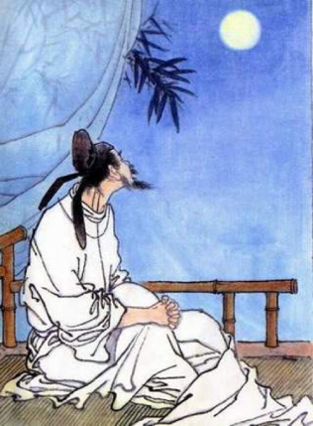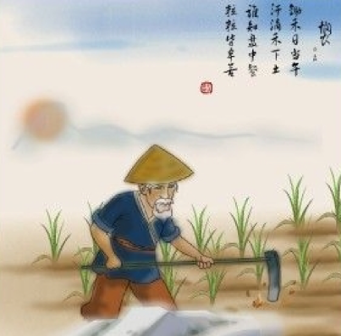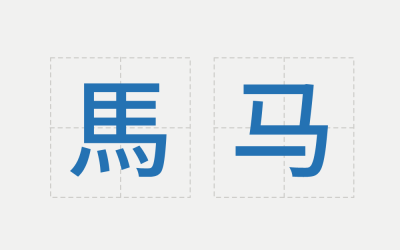In the United Kingdom, everyone knows the words to a few songs that are taught to children at an early age. Such as “Mary Had A Little Lamb”, as well as “Twinkle Twinkle Little Star” and the unforgettable “London Bridge is falling down”. Similarly to us, there is a lot of Chinese poems children know in China.
Similarly in China, there are few famous poems that every child is expected to memorize. Parents will usually beckon over their child and ask them to recite the poems, and teachers at school will test children on these poems as part of class. These poems have great cultural significance, passed down the generations.The funny thing about these Chinese poems is that they may not make sense to the average Chinese learner. It’s like how Shakespeare would sound to modern day English speakers.
If you are learning Chinese, these poems are a fantastic lens into Chinese culture through the ages, and a great way to practice memorization and speech in Mandarin Chinese. So let’s look at 3 Chinese poems children know in China.

1. 静夜思 (Jìng yè sī) – Thoughts in the Silent Night (Chinese poems children know)
This was the first Chinese poem that I learnt thanks to my online Chinese study partner, and I still remember it 3 years later. And I think it’s one of the most common Chinese poems that children know in China.
床前明月光,
Chuáng qián míng yuè guāng,
疑是地上霜。
Yí shì dì shàng shuāng.
举头望明月,
Jǔ tóu wàng míng yuè,
低头思故乡。
Dī tóu sī gù xiāng.
English Translation:
Moonlight reflects off the front of my bed.
Could it actually be the frost on the ground?
I look up to view the bright moon,
And look down to reminisce about my hometown.
2.七步诗 (Qībùshī) – Seven Steps Verse
“Seven Steps Verse” was created during the Three Kingdoms period (220 – 280 AD) by 曹植 (Cáozhí). Meaning that this poem is very old. Legend has it, 曹植’s cruel older brother who was emperor at the time. He was jealous of his younger brother’s intelligence and talent. The emperor forced the younger brother to create a poem within seven steps. If he couldn’t, then he would be given the death penalty.
The poor younger brother knew of the older brother’s intentions. And created this poem to appeal to the older brother’s sense of guilt. Of the famous Chinese poems children know, this is one of the most interesting and heartwarming.
煮豆燃豆萁,
Zhǔ dòu rán dòu qí
豆在釜中泣。
Dòu zài fǔ zhōng qì.
本自同根生,
Běn zì tóng gēn shēng,
相煎何太急。
Xiāng jiān hé tài jí.
English Translation:
Lighting the bean stalk to boil the beans,
and of this the beans thus wailed:
“Borne are we of the same root;
should you now burn me with such disregard?”

h3. 悯农 (Mǐn Nóng) – Toiling Farmers
‘Toiling Farmers’ was written by Tang Dynasty poet 李绅 (Lǐ shēn) to reflect the grueling working life of a farmer. The first two lines describe how the farmer toils with the hot noon sun bearing down on him. He is essentially watering the crops with his sweat. The last two lines relates the farmer’s hard work with the food in people’s bowl. And that every grain of rice comes at the expense of hard labor.
Interestingly, in present day, of the Chinese poems children know this is often used at the dinner table. By Chinese parents in to educate their children about not wasting food.
锄禾日当午,
Chú hé rì dāng wǔ,
汗滴禾下土。
Hàn dī hé xià tǔ.
谁知盘中餐,
Shuí zhī pán zhōng cān,
粒粒皆辛苦。
Lì lì jiē xīn kǔ.
English Translation:
Farmers weeding at noon,
Sweat down the field soon.
Who knows food on a tray
Thanks to their toiling day?
Final Words
So there you have it, 3 Chinese poems children know. In addition to those featured in this post, a few other Tang Dynasty notables are 杜甫 (Dù Fǔ), 王维 (Wáng Wéi), and 岑参 (Cén Cān).
Have you heard of any of these famous Chinese poems before? Which poem, or poet is your favorite? How do they compare to Western poems?
Let us know in the comments below!
And if you’re looking for more ways to improve your Chinese, check out our post with a list of easy Chinese books that can help boost your reading skills.









0 Comments